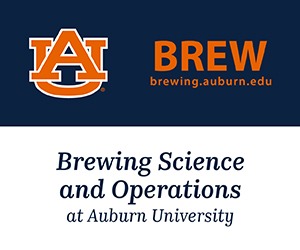Mash Hopping
TroubleShooting
Keith Bachman - Ozark, Missouri asks,
I have encountered some debate on a beer science/homebrewing question that has a couple of us split. I harvested some homegrown Columbus hops this year and was thinking about using them in a mash hop to help bring a lot of hop aroma and flavor without having a significant amount of trub and wort loss in the boil. I got this idea from reading Mitch Steele’s book on IPAs. However, one of the people I brought this up to said it would be a waste of my hops because all of the aroma/flavor components in the hops will just be boiled off. Do you have any experience with mash hopping beers? What would the science suggest about using hops in the mash? Thanks for your insight!
Thanks for the good question, Keith. I have always thought that the notion of adding hops early in the process, either as mash additions or pre-boil additions to the kettle, in an attempt to improve aroma retention is completely counter-intuitive and inherently illogical. Increased exposure to high temperature will simply lengthen the time for precious hop oils to volatilize and serve as aromatherapy for those around the brewhouse during wort production, so the argument against this method goes. I have never added hops to a mash, and don’t have any first-hand experience with this method. Nothing I have read about this technique has persuaded me to want to experiment with mash hopping because the purported benefits seem pretty marginal.
The basic argument in favor of mash hopping is that flavor components from hops are extracted during mashing that are not extracted in the kettle because of pH differences between the mash and wort. According to this argument the flavor of beers that have been mash hopped are indeed different from those that have not been mash hopped, ergo the method adds something to beer flavor not achievable without the method. Another argument in favor of the method is that hop oils oxidize, become less volatile in the boil and remain in the beer to contribute to beer flavor. I think these arguments are interesting enough that, if you would like to see for yourself, you should brew two batches of the same basic beer with the only difference being the use of mash hopping. You can conduct this experiment, host a blind tasting somewhere large enough for the members of your club … I am thinking that Springfield Brewing Company may want to host your tasting … and determine what it did to your beer.
Many brewing techniques address issues related to process efficiency. Let’s consider a brewery that uses a lot of cone hops and a hop back for hop removal. If the hop cones are not sparged following separation, wort is lost when the hops are discharged from the hop back. When the hops are discharged from the hop back, they need to be somehow removed from the brewery. One way to deal with both of these issues is to move the hops contained in the hop back into the next mash of the day. This addresses the concern over wort loss and allows the hops to be removed with the spent grain. Voila, problem solved.
Do these methods make any sense and are there similar processes used by brewers? The answer to both questions is yes; it is common practice in many breweries to transfer trub removed from the whirlpool after use to the lauter tun. This reduces wort loss associated with trub and reduces the volume of effluent sent down the drain.
My conclusion on this topic is that mash hopping may have historical ties to attempting to deal with a waste stream. There is a huge amount of anecdotal information on brewing forums about this technique. Some brewers who have used the method believe it is beneficial and others believe it does not do anything other than use expensive hops to contribute nothing identifiable. Looks like you need to conduct an experiment and develop your own opinion about this technique!

